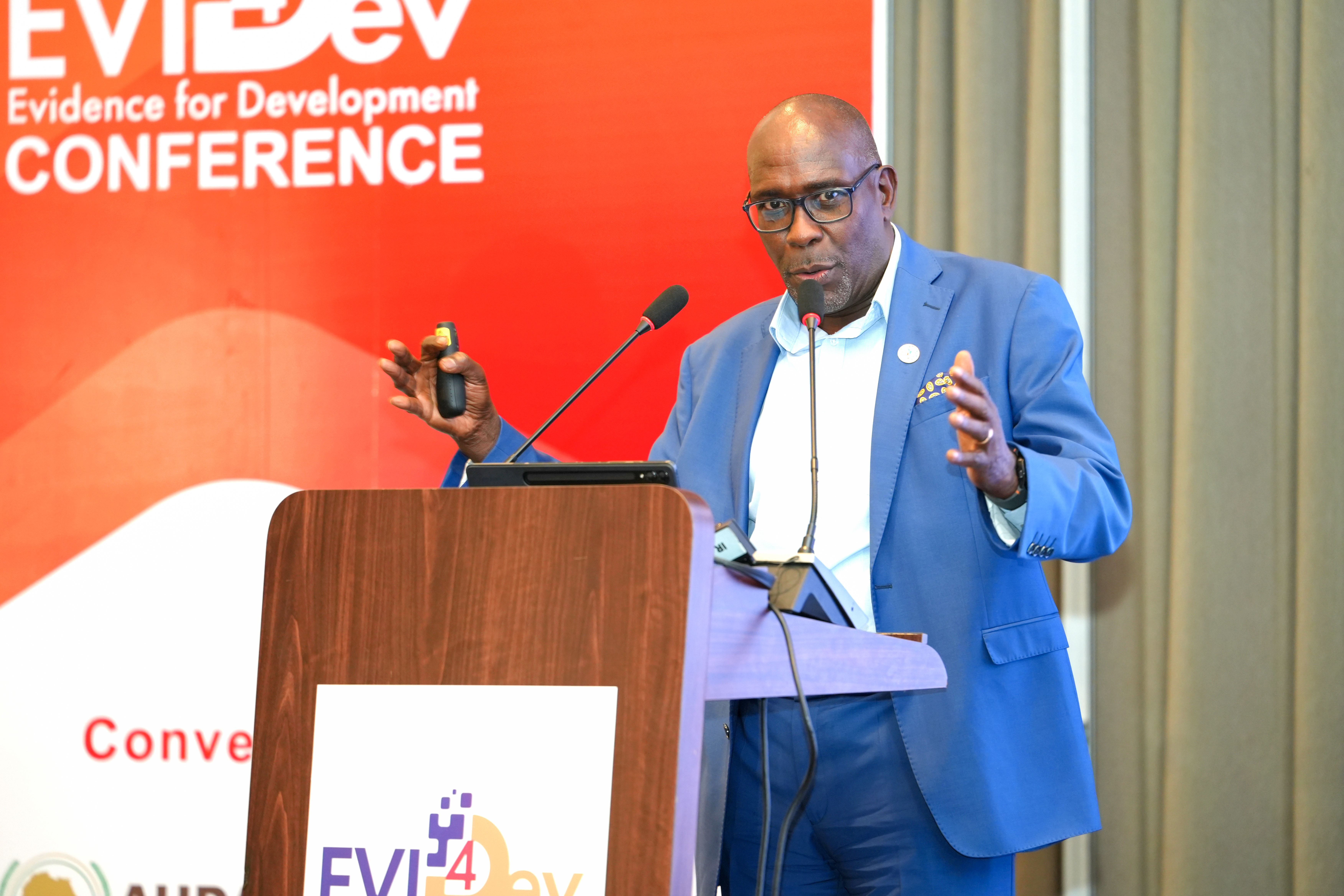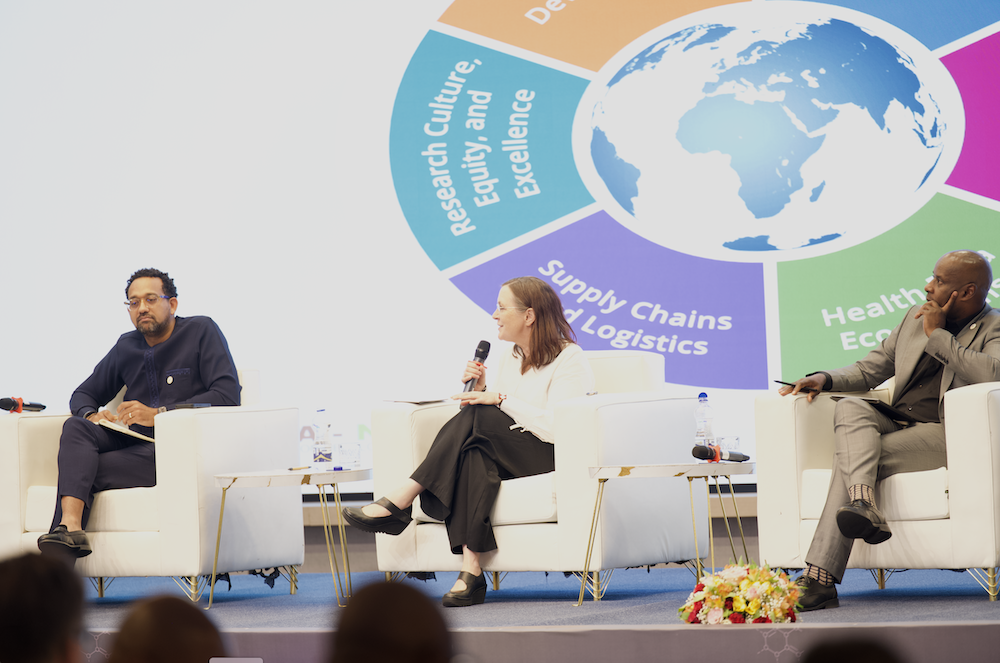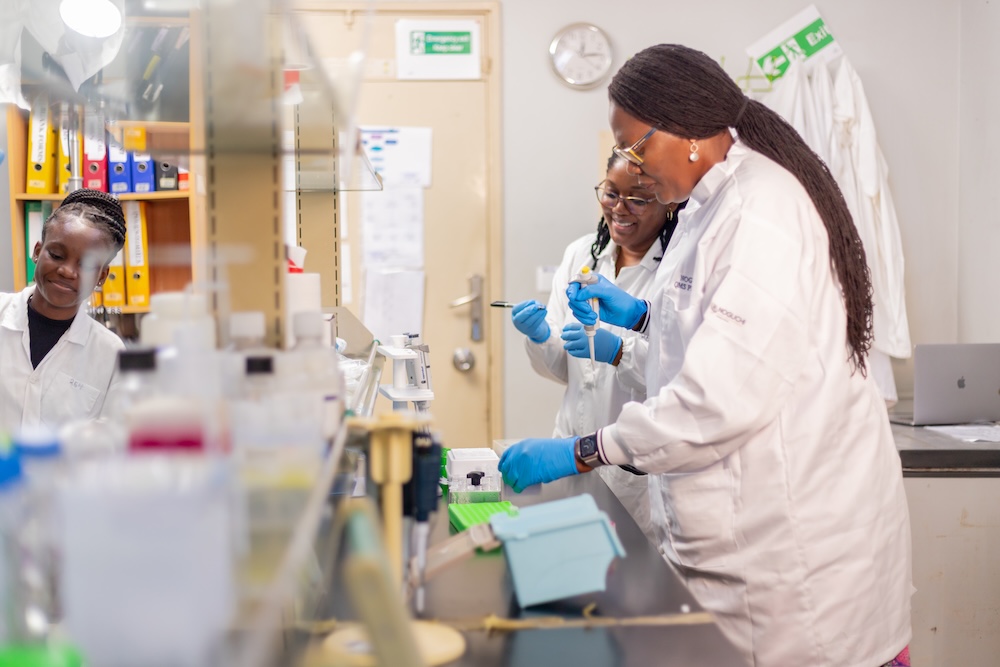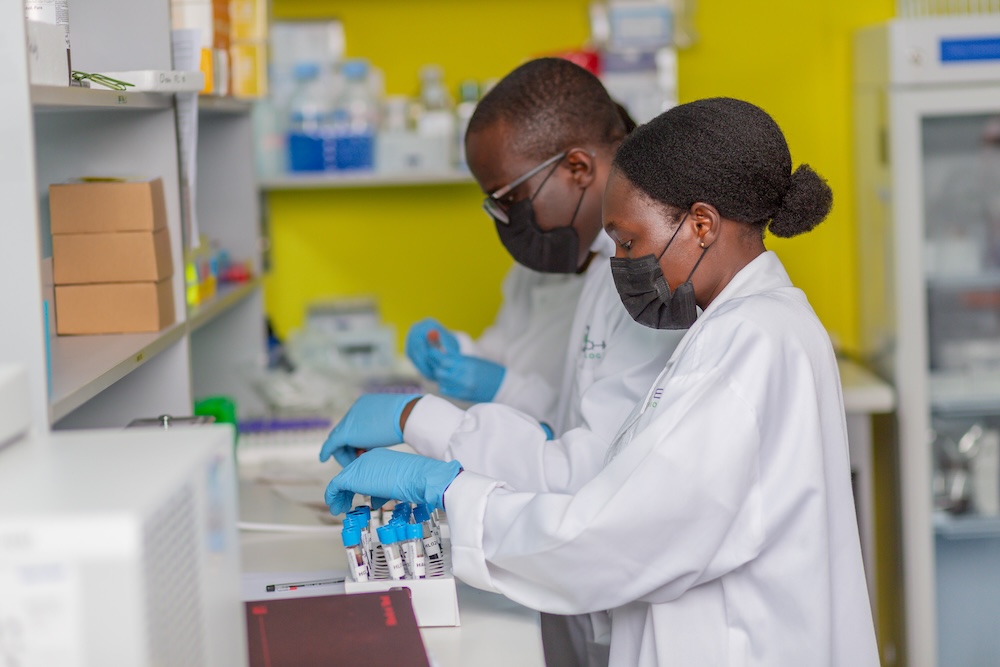
Media Centre
SFA Foundation and partners host inaugural conference centring science, innovation and evidence-based solutions in Africa’s development
Tuesday, May 6, 2025

Nairobi, 6 May 2025 – The African Union Development Agency (AUDA-NEPAD), Science for Africa Foundation (SFA Foundation), and African Institute for Development Policy (AFIDEP) today officially opened the inaugural Evidence for Development Conference in Nairobi, Kenya, with senior government officials, researchers, private sector leaders, civil society organisations and youth innovators from across Africa reaffirming their commitment to placing science, technology, and innovation at the heart of national and continental development.
The three-day conference, taking place 6–8 May 2025, has attracted over 300 delegates from more than 25 countries in Africa. Held under the theme "Optimising the Role of Data, Evidence, and Innovations in Africa’s Efforts to Create Wealth, Empower Citizens, and Foster Responsive Governance," the gathering emphasises the critical role of science, technology, innovation, and evidence-informed policymaking in achieving development blueprints, including the African Union's Agenda 2063 and the global Sustainable Development Goals (SDGs).
Mr Julius Migos Ogamba, Cabinet Secretary for Education, Kenya, in a statement shared by Dr Roselida Owuor – Director of Research Development at MoE Kenya, emphasised the importance of aligning education systems with Africa's scientific ambitions calling for the need for more investments towards the sector to leapfrog development in Africa: “Data, evidence and innovation are not mere buzz words. They are lights for sustainable development which allow us to identify challenges, they inform our decisions that enable us to assign effective policies and allocate resources effectively.” “Inadequate investments and poor data quality are challenges that we must confront head-on,” he added.
Hon Dr Jessie Kabwila, Minister of Higher Education, Malawi called for more investment in in research, institutions of higher learning and knowledge ecosystem to achieve 21st-century workforce that Africa needs: “Africa’s higher education enrolment stands at around 9%, compared to a global average of 38%. Africa invests around 0.5% of its GDP in research and development, compared to the global average of 2.2%. Our research infrastructure is often inadequate, and many of our brightest minds leave the continent due to limited opportunities.”
Reflecting on the broader continental agenda, Prof Brando Okolo, Senior Advisor, Science, Technology and Innovation at AUDA-NEPAD, noted: “As we craft evidence-based policies, we must remember that true progress depends not just on having evidence, but on ensuring its truth. Confirming the integrity of the evidence we rely on is a vital mission, one that will shape the Africa we aspire to build.”
The conference also highlights the centrality of evidence-informed decision-making, ensuring that scientific knowledge and research are embedded into Africa's policy and development frameworks.
Dr Eliya Zulu, Executive Director of AFIDEP, stressed the need for using evidence to enhance efficiency and ensure every resource count. “Every year, billions of dollars are lost through mismanagement, inefficiencies, and outright theft. Research shows that corruption costs the continent over $140 billion annually. That is more than enough to finance critical sectors such as education and healthcare. Evidence can and should help us trace these leakages, identify systemic weaknesses, and design better safeguards for public resources.”
Delegates at the conference will engage in robust discussions on building stronger national and regional innovation systems and increasing investment in research and development.
Dr Tom Kariuki, CEO of SFA Foundation, who gave the keynote address, urged stakeholders to harness evidence and technologies like AI in sectors like healthcare, education, wealth creation, climate change and governance to leapfrog Africa’s development agenda through reducing fragmentation, enhancing productivity and efficiency, and sustainable adaptation: “Transformative change doesn’t happen in silos; it demands collaboration across disciplines, sectors, and borders to unlock the full value of data, evidence, and innovation for the continent. I believe that all of us here, and the institutions we each represent, are united in the belief that Africa can and must lead in defining the next frontier of evidence-informed development. But this cannot be done in isolation. We need funders, governments, researchers, communities, and the private sector to join us—not as stakeholders, but as co-owners.”
Throughout the conference, participants will deliberate on key topics such as sustainable financing for STI and evidence, harnessing emerging technologies, building inclusive knowledge societies, and strengthening the governance of research and innovation.
Discussions will also focus on how to strengthen the use of evidence in policymaking to drive Africa’s transformation and achieve the ambitions of Agenda 2063, as well as the Science, Technology, and Innovation Strategy for Africa 2034. STISA 2034 outlines Africa’s vision to leverage STI as engines for growth, competitiveness, and improved well-being.
The conference is expected to conclude with concrete recommendations to enhance Africa’s STI and evidence ecosystems and accelerate the continent’s journey towards a knowledge-based, innovation-driven future.
The conference is co-convened through a strategic partnership between AUDA-NEPAD, AFIDEP, and SFA Foundation. The co-conveners have been joined by other partners and sponsors including: William and Flora Hewlett Foundation, African Center for Equitable Development (ACED), IDinsight, The Mawazo Institute, Speak Up Africa, Strathmore University, African Centre for Technology Studies (ACTS), Afrobarometer, Africa Evidence Network (AEN), PATH, LEEPS Partnership, Coalition for Health Research and Development (CHReaD), African Health Research, Innovation and Development Alliance (AHRIDA), African Population and Health Research Center (APHRC), Busara Center for Behavioral Economics, Evidence Use in Environmental Policymaking in Nigeria (EUEPiN), University of Lagos, Population Council Kenya, and The Center for Rapid Evidence Synthesis (ACRES).
Other Quotes
Dr Frejus Thoto, Executive Director, African Center for Equitable Development (ACED): “This conference is a powerful demonstration of how evidence-focused organisations can come together to strengthen evidence-informed policymaking across the continent. We were especially pleased to collaborate with AFIDEP and other partners, contributing our regional expertise on Francophone Africa and sharing perspectives on why and how we must advance an evidence agenda that includes Regional Economic Communities and the African Union. Supporting policymaking at a regional scale is not just necessary, it is strategic for Africa’s development.”
.............
Prof Tom Ogada, Executive Director, African Centre for Technology Studies (ACTS): “The Evi4Dev Conference speaks directly to what we believe at the African Centre for Technology Studies (ACTS), that data, evidence and innovation are important tools for building a stronger and more inclusive Africa. By focusing on how these tools can help create wealth, empower people and improve governance, the conference aligns well with our mission to make science and technology work better for sustainable development across the continent, in line with AU Agenda 2063 and STISA 2034.”
.............
Dr Catherine Kyobutungi, Executive Director, African Population and Health Research Center (APHRC): “Global health stands at a crossroads —disruptions in the core of its architecture, uncertainty over funding and shifting power against a backdrop of widening inequities, and a slowdown in progress towards SDG targets. This is a time demanding for a rethink of the role of global health in the African continent's true transformation. Evidence must guide us, and health must be reclaimed as a universal right—not the privilege of the powerful.”
.............
Dr Boniface Dulani, Director of Surveys at Afrobarometer: “At Afrobarometer, we believe that Africa’s development should be anchored in the aspirations of its people. The Evidence for Development conference is vital because it brings together data producers, policymakers, and practitioners to ensure that the lived realities of citizens – as captured through credible surveys – inform and drive meaningful change across the continent.”
.............
Dr Martin Atela, Director and Kenya Country Lead, IDinsight: “By championing the use of robust data and proven approaches to decision-making, we’re elevating Africa’s global position as a knowledge and innovation powerhouse, and actively shaping the continent’s development agenda toward sustainability, economic growth, citizen empowerment, and accountable governance.”
.............
Yacine Diop Djibo, Founder and Executive Director, Speak Up Africa: “The Evi4Dev Conference offers a timely and vital platform to champion the integration of data, evidence, and innovation into Africa’s development agenda. Speak Up Africa is proud to support this initiative, as part of our ongoing commitment to inclusive, evidence-informed policymaking. As we look to shape a prosperous and equitable Africa, we must change the story by elevating the voices of women and youth whose insights, leadership, and resilience are essential to building the Africa we want.”
Download Event Photos Here.
Media Contacts
Derick Ngaira, +254702833340, [email protected]
Fiona Makayoto, +254713 622328, [email protected]
About AUDA NEPAD
The African Union Development Agency – New Partnership for Africa’s Development (AUDA-NEPAD) was established to accelerate economic and social development across the African continent. https://www.nepad.org
About AFIDEP
The African Institute for Development Policy (AFIDEP) is an African-led, non-profit research and policy institute established in 2010 to bridge the gaps between research, policy, and practice in African development. https://afidep.org
About Science for Africa Foundation
The Science for Africa Foundation Foundation (SFA Foundation) is a pan-African, non-profit, public charitable organisation created to support, strengthen, and promote science and innovation in Africa. https://scienceforafrica.foundation



